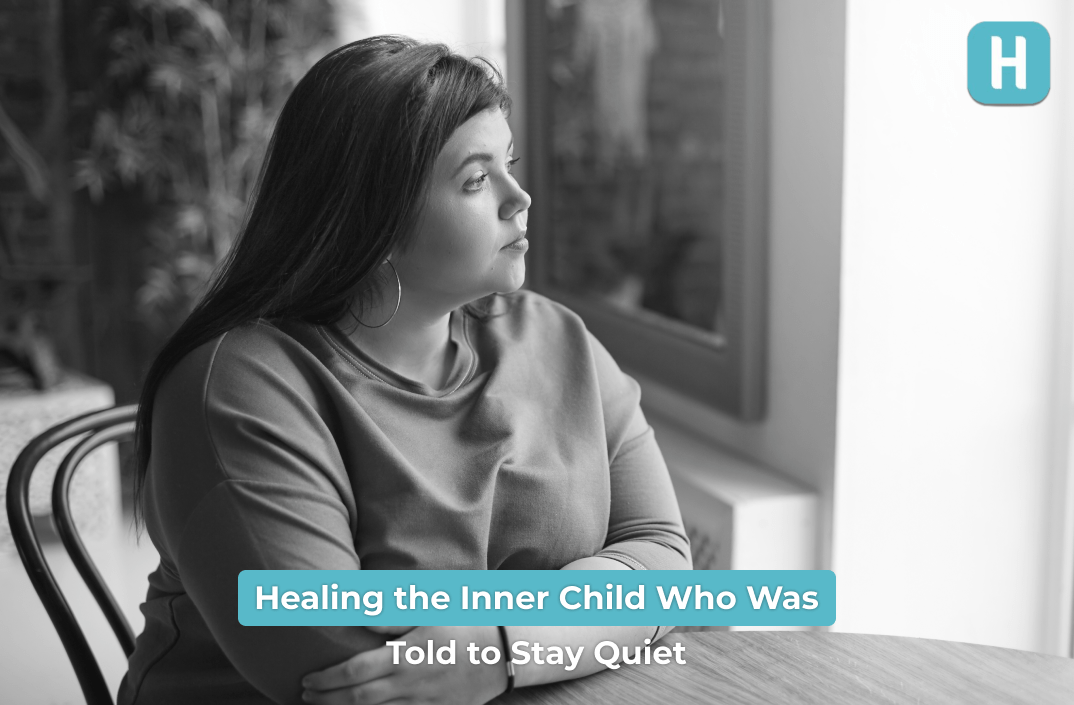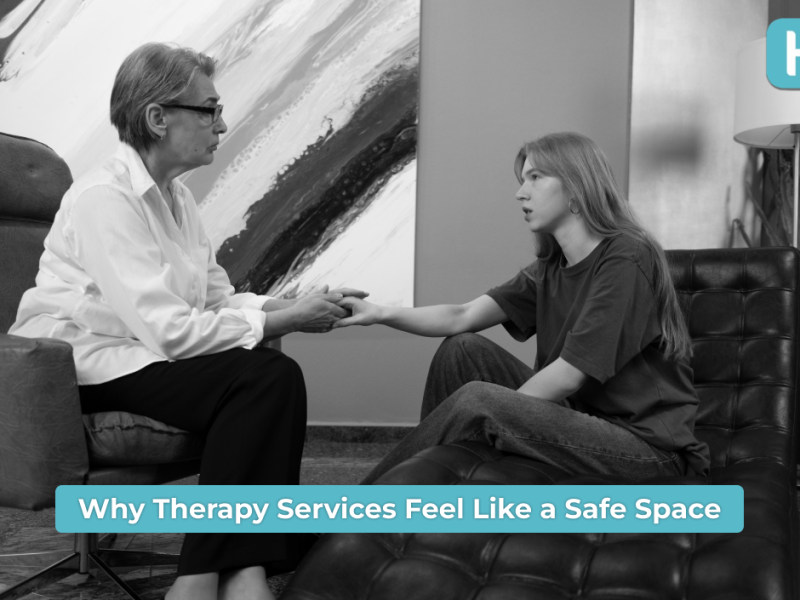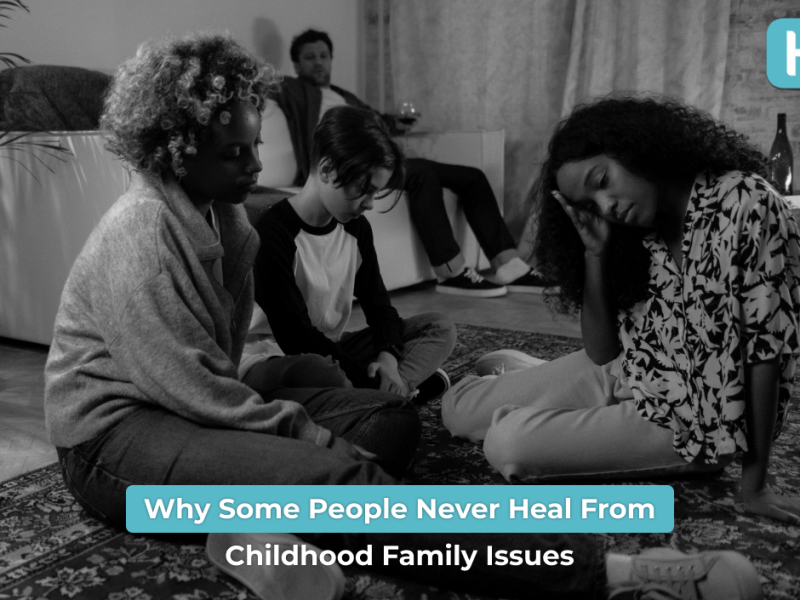There’s a kind of pain that doesn’t scream. It doesn’t come from broken bones or sharp words.
It comes from the silence you were forced to live in.
Perhaps you were the quiet child, the “easy” one. The one who never spoke up, never asked for too much, never cried too loudly.
Not because you didn’t want to
But because someone, somewhere along the way, taught you to stay quiet.
If you’ve ever felt like your voice didn’t matter, like your thoughts were too much, or your emotions were a burden, this is for you.
This is your reminder: you were never meant to disappear.
This is about inner child healing and giving that quiet child inside you the love, voice, and validation they never got.
Childhood You Had vs. The One You Needed
You might have had clothes, food, or even a roof over your head. On paper, your childhood looked fine.
But emotionally? You were alone. Unseen. Silenced.
Childhood emotional neglect doesn’t always come from abuse.
Sometimes, it comes from subtle messages like:
- “Stop crying.”
- “Don’t talk back.”
- “You’re too sensitive.”
- “We don’t talk about that in this house.”
These phrases may not sound cruel. But to a child, they teach one core belief:
It’s safer to stay quiet than to be fully yourself.
Signs You Were Conditioned to Stay Quiet
If this conditioning happened to you, it didn’t go away just because you grew up.
Here’s how it shows up today:
- You apologize when you haven’t done anything wrong.
- You shrink your needs to avoid conflict.
- You struggle to express anger or sadness.
- You dismiss your own emotions as “dramatic.”
- You tend to avoid speaking up in relationships, at work, or in groups.
- You feel guilty for setting boundaries.
These are not personality traits. They’re survival strategies your inner child developed.
But survival isn’t the same as living.
Inner Child Still Lives in You
You’re not broken. You’re not “too sensitive.”
You’re carrying a little version of yourself who still feels afraid to be loud, honest, and real.
That’s where reparenting yourself begins, going back to that child within you and showing them what safety, love, and permission feel like.
To heal from silencing, you don’t need to relive every memory.
You need to start showing your inner child: It’s safe now to be seen.
What Is Reparenting and Why Does It Matter?
Reparenting yourself is the process of becoming the nurturing, validating adult that your younger self needs.
It’s how you rewrite the old script that told you to “stay quiet.”
Instead of ignoring your emotions like your caregivers did, you learn to sit with them.
Instead of minimizing your needs, you begin honoring them.
Examples of reparenting include:
- Saying, “It’s okay to feel this” when you’re upset
- Speaking up in situations where you’d usually stay silent
- Setting boundaries with people who drain you
- Journaling or talking to your inner child as if they were in front of you
- Reminding yourself: “I matter. My voice matters.”
- This isn’t a quick fix, but it’s how true inner child healing begins.
Why Staying Quiet Felt Safer Than Speaking Up
As a child, silence wasn’t a weakness. It was protection.
You stayed quiet because:
- You feared punishment or rejection.
- You learned that expressing pain led to shame.
- You didn’t want to burden your caregivers.
- You were rewarded for being “good” when you were quiet.
- But that pattern, once helpful, is now hurting you.
The cost of silence?
- Unspoken needs
- Bottled-up resentment
- Shaky relationships
- Constant people-pleasing
- Chronic anxiety about conflict
- Stay quiet, that’s what anxiety trains you to do in the face of conflict.
To truly heal, you must realize that your silence was never a flaw; it was a gift. It was a wound.
Healing from Silencing Takes Time, But It’s Worth It
There’s no timer on healing from silencing. Some people find their voice by the time they are 25. Others are at 45.
What matters is that you begin.
And the first step? Listening to yourself.
Ask:
- What am I feeling right now?
- What does my inner child need to hear?
- When did I first learn to stay quiet?
These questions unlock a truth you’ve buried under years of coping.
And the more you listen, the more you’ll realize:
You’ve always had something to say, and it still matters.
Small, Brave Ways to Stop Staying Quiet
Healing doesn’t require shouting. Sometimes, the most potent moments are quiet but honest.
Here are small ways to honor the voice you once silenced:
1. Speak when it’s uncomfortable.
If someone interrupts you, finish your sentence. If a boundary is crossed, express it. Even trembling words are strong words; don’t feel forced to stay quiet.
2. Write letters to your younger self.
Say everything you wish someone had said to you. You’ll be surprised how much power those words still hold.
3. Say ‘No’ without explaining.
Every time you say no without guilt, you rewrite the idea that your needs are less important.
4. Celebrate when you speak your truth.
Even if your voice shakes, especially when it shakes, it means you’re breaking the pattern to no longer stay quiet.
5. Notice your triggers.
When you feel the urge to stay quiet, ask: “What am I afraid will happen if I speak up?” The answer is often rooted in your past, not your present.
You Are Not a Burden. You Were Just Taught to Believe You Were.
This is the heart of inner child healing.
Understanding that you were never too much.
You were never too loud, too emotional, or too needy.
You were just a child in a home that didn’t know how to handle your fullness, so you shrank to survive.
Now? You get to grow again.
Your Voice Deserves to Be Heard
Healing isn’t about blaming your parents or reliving your pain forever.
It’s about finally becoming the adult who says to that inner child:
- “You don’t have to stay quiet anymore. I’m listening now.”
- When you reclaim your voice, you reclaim your power.
- When you speak up, even a little, you prove to that younger you: we made it.
- We’re safe now. And we don’t need to hide anymore.
You may have been silenced once. But choosing not to stay quiet can redefine your story.
The next chapter? It’s written in your own words.
And it begins now.
When You’re Loud in Your Head but Silent in the World
Sometimes, people mistake quietness for peace. But for many who were conditioned to stay quiet, silence isn’t peaceful. It’s loud.
It’s the constant overthinking before speaking.
It’s rehearsing conversations in your head before you ever say a word.
It’s second-guessing every text you send, every “no” you try to give, every emotion you dare to express.
Because deep down, you were trained to believe:
- If I speak up, something bad might happen.
- The first time you were punished for telling the truth.
- The first time you were told, “Don’t make a scene.”
- Those moments taught your inner child: It’s not safe to be me.
That fear didn’t start yesterday. It started the first time someone rolled their eyes when you cried.
And when that belief goes unhealed, it becomes your default way of living, even as an adult.
Lifelong Impact of Staying Quiet
Silencing yourself doesn’t just affect how you speak; it also impacts how you think. It touches every part of your life.
It impacts:
- Relationships: You may struggle to communicate your needs, feel pressured to stay quiet, leading to one-sided dynamics or emotional disconnection.
- Career growth: You might avoid sharing ideas, asking for promotions, or taking risks because you’re afraid of being “too much.”
- Self-worth: You begin to believe your opinions, desires, and feelings are less important than everyone else’s.
- Physical health: Bottled-up emotions , the result of constantly being told to stay quiet, often turn into anxiety, headaches, digestive issues, or chronic fatigue.
The pattern of being the “quiet one” might have protected you in the past.
But now, it’s holding you back in spaces where you deserve to grow.
Reparenting Means Creating New Safety
Healing your voice doesn’t mean becoming loud or confrontational. It means building internal safety so that your truth no longer feels dangerous.
Reparenting yourself in this context could look like:
- Reminding yourself that it’s okay to take up space
- Comforting your inner child when you feel triggered
- Sitting with your feelings instead of forcing yourself to stay quiet about them.
Rewriting the story: “My voice creates connection, not rejection.”
This is how you begin healing from silencing. Not by forcing yourself to be “louder,” but by gently teaching yourself that your voice is allowed.
That your presence is allowed.
That your story, however soft or shaky, deserves to be told.
You Don’t Heal in Isolation
Here’s the truth most people don’t talk about:
You were silenced in a relationship, so your healing will also happen in a relationship.
Whether that’s through therapy, a supportive friend, a safe community, or even writing and sharing your story, it’s through a connection that your voice becomes real again.
It’s in saying “I feel this” and hearing “Me too” that we undo the shame.
And sometimes, the most powerful moment isn’t shouting in confidence, it’s whispering for the first time:
I don’t want to stay quiet anymore.
That moment is sacred. And it deserves to be honored.
How Helply Can Help?
If you’re struggling to connect with your inner child or break free from years of being told to stay quiet, Helply is here for you. We understand how deep these wounds run and how hard it is to unlearn what you were conditioned to believe.
Our compassionate, trauma-informed therapists specialize in childhood emotional neglect, inner child healing, and reparenting yourself. Whether you’re navigating long-held silence or just beginning to explore your emotional history, Helply provides a safe space to speak, feel, and finally heal.
You deserve to be heard.
You deserve to feel whole.
And with Helply, you don’t have to do it alone.
FAQs
Q1: How do I know if I was conditioned to stay quiet as a child?
If you often hold back your feelings, overthink before speaking, or feel guilty for expressing needs, chances are you were taught, directly or indirectly, that silence was safer. Perhaps you were praised for being “easy” or punished for speaking up. That conditioning runs deep, even if you don’t remember all the details.
Q2: Why do I still struggle with speaking up, even as an adult?
Because your nervous system remembers what your mind tries to forget, if your childhood taught you that using your voice led to rejection, anger, or embarrassment, then silence became a survival tool. The struggle isn’t a weakness; it’s a trauma response. And it’s one you can heal from.
Q3: What does inner child healing look like in real life?
It’s not about going back in time. It’s about listening to the part of you that still feels small, scared, or silenced. In real life, this could manifest as journaling from your younger self’s perspective, practicing self-compassion, allowing yourself to cry, or simply saying, “I’m allowed to take up space.” Healing is in the little moments where you choose yourself.
Q4: Can I heal on my own, or do I need therapy?
You can start the healing journey on your own, and many people do. But if the silence feels too heavy or confusing, having a therapist can make a huge difference. Especially one trained in childhood emotional neglect, inner child healing, or reparenting yourself. You don’t have to figure this out alone.
Q5: I’m afraid people won’t accept the “real” me if I stop staying quiet. What should I do?
That fear is valid and common. You’ve spent years shaping yourself around others’ comfort. But here’s the truth: the right people won’t leave when you stop shrinking. They’ll finally see you. Start small. Speak your truth to someone safe. Over time, you’ll learn that being real isn’t what drives people away; hiding is.
Q6: Why does this still hurt me, even though my childhood is long over?
Because time alone doesn’t heal wounds, attention does. Emotional neglect and silencing leave deep marks on our identity. That ache you feel now? It’s your inner child asking to be seen finally. The pain is real, and so is your ability to heal it.
Q7: What’s one simple thing I can do today to start healing?
Start by saying one thing out loud that you’ve been keeping in. It can be as small as “I didn’t like that” or “I need a break.” Then, remind yourself: “My voice is valid.” One honest sentence can shift your entire relationship with yourself.




